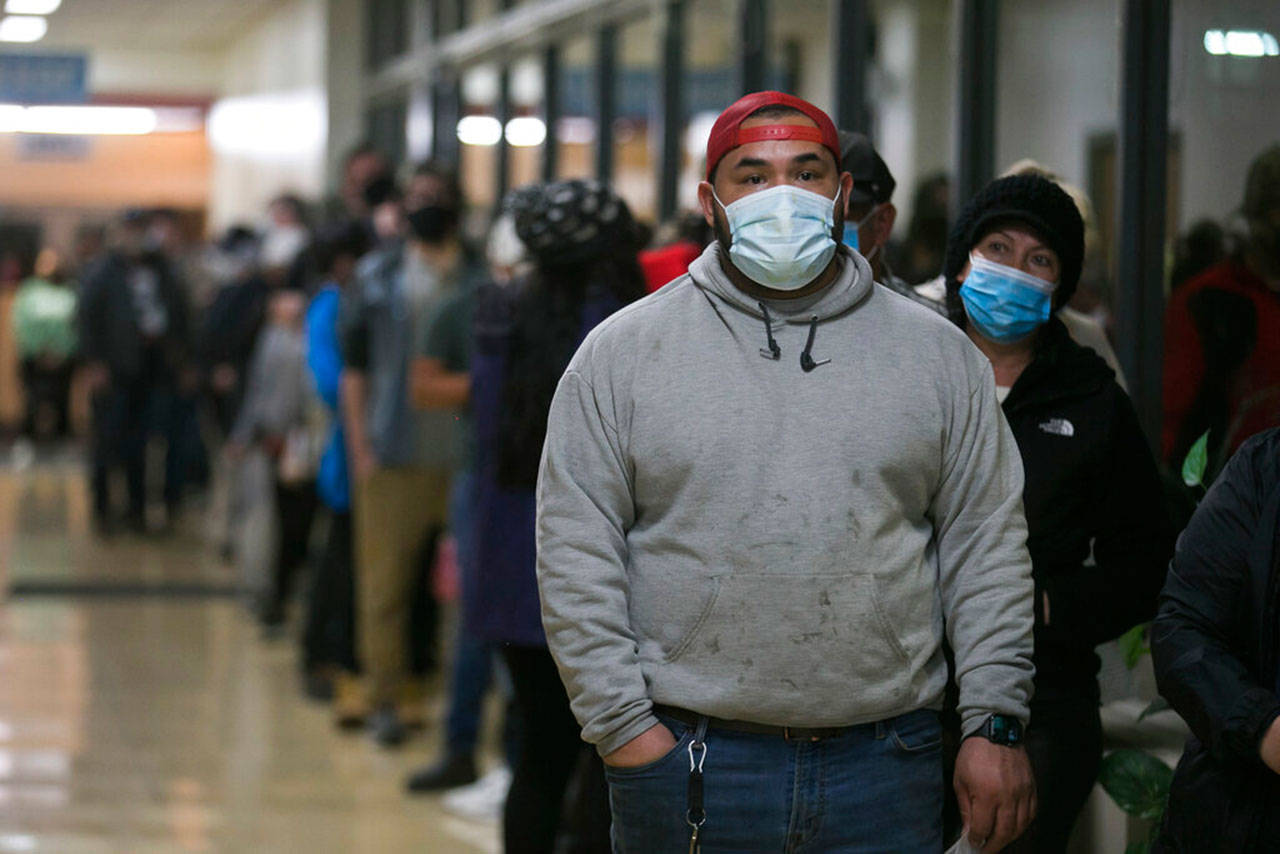By Michele L. Norris / Special to The Washington Post
We call ourselves a democracy: a government of the people, by the people and for the people. But when it comes to voting, many Americans stay on the sidelines, and it’s been that way for decades. That changed this year. More than 100 million people cast their ballots before Nov. 3, and while votes are still being counted, we already know that turnout will prove historic.
It’s not just who voted. It’s how, where and when they voted. There was more early voting and more voting by mail, despite attempts to discredit and slow the U.S. mail. And as voting became more varied, we saw greater efforts to demystify the process with tutorials and hotlines and detailed explanations in multiple languages targeted to specific audiences.
We saw increases in curbside voting, 24-hour voting, easier voting for disabled Americans and medically secure, drive-through voting so that folks who had tested positive for the coronavirus could participate.
We also saw a significant shift in the attitude voters brought to the process. Millions of people who sat out the 2016 race decided to step back in to cast a vote. Young Americans between 18 and 29 — a cohort known for sluggish participation at the polls before — showed up in numbers not seen since 2008, reflecting the rise in youth activism that’s been on display all year.
When history looks back on 2020, the long voting lines will convey both the participation and the passion recent events have engendered. I hope these high levels of voter turnout continue, and I hope that as they do, election officials will figure out how to better accommodate the deluge: the people who carried folding chairs in lines that stretched for blocks. The voters who stood stoically in the rain. The iconic photo of the woman who showed up with her baby on her hip, both of them zippered inside a portable plastic bubble.
These voters were described as heroes for their commitment and dedication. I find that description irksome, because what they really are is inconvenienced. Those long lines are not universal. Black, brown and low-income voters historically face longer wait times. Rarely is systemic oppression as vividly on display as it is when certain people are forced to wait hours for their turn to cast a ballot.
And yet many people met this suppression with creativity, resolve and even joy. The disco trucks that blared music outside polling spots. The line dances that turned polling places into impromptu parties. Lonnie and Clara Neely, age 101 and 102, who sang “Swing Low, Sweet Chariot” while waiting to drop off absentee ballots in Tuscaloosa, Ala.
Joy has not always been part of this exercise for some people. During the civil rights era — just a few decades ago — training and manuals for would-be voters advised people of color to be polite and determined, but save their hallelujahs for the privacy of their homes, so as not to provoke the forces trying to keep them from the ballot box.
Sadly, those forces still exist.
2020 will be remembered as a year when record numbers showed up at the polls despite an unprecedented effort by the Republican Party leaders to suppress the vote.
Their continued and desperate attempts at suppression need to stop. A party that can’t win an election without rigging the system is not worthy of leadership. I know that a party that uses online campaigns of misinformation and encourages and condones intimidation tactics at polling places is undermining the foundations of a democracy for which so many have died.
You can’t wrap yourself in the flag while working to strangle all that it represents.
It’s a sweet irony: The president’s constant threat of a supposedly “rigged” election may prove to have been more catalytic than cautionary.
All through this year of tumult and uncertainty, we have been forced to ask ourselves if there is a permanence to the unusual things we’ve had to embrace. But the verdict on our new brand of election seems clear; officials say the shift toward early and mail-in voting will likely be lasting, opening more paths for more people to participate in our democracy.
Our country’s founders never imagined curbside voting, polling places in sports arenas or 24-hour voting centers. But then again, they didn’t imagine that women or people of color should vote, either. “For the people” means for all of the people, and while the system is far from perfect, we need to keep marching toward that foundational ideal.
Michele L. Norris is a contributing columnist and consultant for Post Opinions and founding director of The Race Card Project.
Talk to us
> Give us your news tips.
> Send us a letter to the editor.
> More Herald contact information.

























